Introduction
In today’s data-driven world, businesses heavily rely on professionals who can turn raw data into actionable insights. Among the most pivotal roles in this landscape are Research Analysts and Data Analysts, two positions that play a crucial part in shaping informed strategies and driving business decisions. While these roles may appear similar at first glance, a closer look reveals distinct responsibilities, specialized skill sets, and differing objectives. Each contributes uniquely to an organization’s success, with Research Analysts focusing on market and industry trends and Data Analysts delving into the company’s internal datasets for performance optimization.
Understanding the nuances of these roles is vital for businesses seeking to harness the power of data effectively and for individuals aspiring to carve a path in the analytics domain. In this blog post, we’ll break down the primary distinctions between Research Analysts and Data Analysts, examining their responsibilities, tools, and impact on business operations. Whether you’re a business professional looking to hire the right expertise or a student considering the Best data science certification, this guide will help clarify the differences and guide you toward making an informed choice.
What is the Difference Between Research Analyst vs Data Analyst?
In the age of data-driven decision-making, organizations rely on specialized professionals to extract insights from raw information and provide actionable strategies. Two such critical roles are Research Analysts and Data Analysts. While these roles are often conflated, they serve distinct functions in driving business success. If you’re considering a career in analytics or pursuing a data science course online, understanding the differences between these two roles can help you identify which path aligns with your career goals.
This blog explores the key distinctions, skill requirements, and career paths for Research Analysts and Data Analysts, empowering you to make informed decisions about your professional journey.
The Era of Analytics
As organizations increasingly prioritize evidence-based strategies, the demand for analytics professionals has surged. Research and data analysis lie at the heart of this transformation, with both roles leveraging data to address problems, forecast trends, and optimize performance.
The Rising Demand for Analysts
According to a report by IBM, the global demand for data scientists and analysts is expected to grow by 28% by 2030. Furthermore, a LinkedIn study identified data analytics as one of the most sought-after skill sets for modern professionals. Enrolling in the best data science certification programs can equip aspiring analysts with the necessary expertise to excel in these high-demand roles.
Who is a Research Analyst?
A Research Analyst is responsible for gathering, organizing, and interpreting data to inform strategic decisions. Their primary focus is to analyze market trends, industry patterns, and competitor activities to provide insights that shape business strategies.
Key Responsibilities:
- Conducting qualitative and quantitative research on markets or industries.
- Preparing detailed reports and presentations for stakeholders.
- Monitoring industry trends and forecasting future developments.
- Evaluating competitor strategies and market positioning.
Real-World Example:
Consider a retail chain planning to enter a new market. A Research Analyst would study local market conditions, consumer behavior, and economic indicators to determine feasibility and recommend strategies for success.
Who is a Data Analyst?
A Data Analyst focuses on processing and analyzing structured data to identify trends, patterns, and insights that optimize business processes. Their work is more technical, often involving the use of advanced tools and techniques to manage large datasets.
Key Responsibilities:
- Cleaning, transforming, and analyzing datasets to extract insights.
- Creating data visualizations to simplify complex information.
- Developing automated reporting systems to track key metrics.
- Collaborating with IT teams to improve data infrastructure.
Real-World Example:

Data analysis business intelligence analytics internet technology concept
A Data Analyst working for an e-commerce company might analyze customer purchase data to identify top-selling products, optimize inventory, and predict future sales trends.
Core Differences Between Research Analysts and Data Analysts
Focus and Scope of Work
- Research Analysts: Focus on external factors like market trends, industry research, and competitor analysis. Their scope is broader and often involves strategic decision-making.
- Data Analysts: Concentrate on internal data to improve operational efficiency, such as sales, customer behavior, and product performance.
Types of Data Used
- Research Analysts: Utilize unstructured data, including surveys, interviews, industry reports, and public records.
- Data Analysts: Primarily work with structured data stored in databases or spreadsheets.
Tools and Techniques
- Research Analysts: Employ statistical tools like SPSS, as well as qualitative methods such as thematic analysis.
- Data Analysts: Rely on programming languages (Python, R), database management tools (SQL), and visualization platforms (Tableau, Power BI).
Skills and Qualifications
- Research Analysts: Require strong critical thinking, market research expertise, and the ability to synthesize diverse information sources.
- Data Analysts: Demand proficiency in data wrangling, statistical modeling, and technical tools.
Deliverables
- Research Analysts: Generate detailed research reports, white papers, and presentations.
- Data Analysts: Create dashboards, performance reports, and actionable insights.
Skill Requirements for Each Role
Skills Needed for a Research Analyst
- Market Research Expertise: Knowledge of methodologies like surveys and focus groups.
- Critical Thinking: Ability to interpret data and draw logical conclusions.
- Communication Skills: Crafting clear and persuasive reports.
- Statistical Knowledge: Familiarity with statistical tools and concepts.
Skills Needed for a Data Analyst
- Programming Skills: Expertise in Python or R.
- Data Manipulation: Proficiency in SQL for querying databases.
- Data Visualization: Ability to create compelling visualizations using Tableau or Power BI.
- Problem-Solving: Tackling complex data challenges.
Enrolling in a data science course online can provide hands-on experience with these skills, preparing you for a career in analytics.
Industry Applications of Research Analysts vs. Data Analysts
Research Analysts
- Marketing: Studying consumer preferences to craft targeted campaigns.
- Finance: Analyzing economic trends for investment strategies.
- Healthcare: Conducting clinical research to improve patient outcomes.
Data Analysts
- Retail: Optimizing inventory management and pricing strategies.
- Technology: Monitoring software performance and user behavior.
- Banking: Detecting fraudulent transactions using predictive analytics.
Educational Pathways for Aspiring Analysts
Becoming a Research Analyst
- Degree Requirements: Typically, a bachelor’s degree in business, economics, or social sciences.
- Certifications: Market research certifications like PRC (Professional Researcher Certification) can enhance credibility.
Becoming a Data Analyst
- Degree Requirements: Bachelor’s in computer science, mathematics, or related fields.
- Certifications: The best data science certifications, such as those from H2K Infosys, provide specialized training in analytics tools and methodologies.
The Role of Data Science in Analytics

Data science serves as the backbone of both roles by offering tools and techniques to derive meaningful insights from data. If you’re exploring careers in analytics, mastering data science is essential. A data science course online equips learners with foundational skills, from data cleaning and visualization to machine learning.
Choosing the Right Career Path
Why Choose Research Analysis?
Research analysis is an exciting career path for individuals passionate about diving deep into market trends, consumer behavior, and industry dynamics. It offers the opportunity to play a crucial role in shaping strategic decisions by uncovering valuable insights from various data sources. Research Analysts focus on external factors, such as competitive landscapes, economic trends, and market shifts, making their work pivotal for businesses planning to expand, innovate, or optimize their operations.
This role is perfect for those who enjoy a mix of qualitative and quantitative research methods, as it often involves conducting surveys, interviews, and interpreting complex datasets. Moreover, research analysis is a highly versatile field, with opportunities spanning industries like marketing, finance, healthcare, and consulting. By choosing this path, you not only become an expert in analyzing the world around you but also gain the ability to influence key business strategies, making it a rewarding and impactful career choice.
- Ideal for those who enjoy market research, strategic planning, and qualitative insights.
- Offers opportunities to work in industries like marketing, finance, and consulting.
Why Choose Data Analysis?
Data analysis is an exceptional career choice for individuals who thrive on uncovering meaningful insights from complex datasets. As a Data Analyst, you play a pivotal role in helping organizations make data-driven decisions that optimize operations, improve customer experiences, and enhance overall performance. This field is ideal for those who enjoy problem-solving, working with numbers, and leveraging cutting-edge tools like Python, SQL, and Tableau to extract, interpret, and present data in visually compelling ways.
Data analysis offers diverse opportunities across industries, including technology, healthcare, finance, e-commerce, and more. Whether it’s identifying trends in user behavior, optimizing marketing campaigns, or predicting future sales, Data Analysts are at the forefront of innovation and efficiency. Additionally, the field provides a strong foundation for growth, enabling professionals to transition into advanced roles like Data Scientists or Business Intelligence Analysts.
- Best suited for individuals passionate about programming, statistics, and big data.
- Provides avenues in tech, E-commerce, and business intelligence.
Your choice depends on your interests, skills, and long-term career goals. For hands-on guidance, enrolling in specialized training programs like H2K Infosys’ data science course online can be a game-changer.
Key Takeaways
- Distinct Roles, Shared Goal: While Research Analysts and Data Analysts have different focuses, both aim to provide actionable insights.
- Skillset Determines Success: Each role requires unique skills, from market research expertise to data manipulation techniques.
- Training Matters: A structured learning approach, such as enrolling in the best data science certification, can fast-track your journey into analytics.
Salary and Job Outlook
Research Analyst Salary: The salary of a Research Analyst can vary based on factors such as experience, education, industry, and location. According to the U.S. Bureau of Labor Statistics (BLS), the median annual wage for market research analysts was $65,810 in May 2020. The job outlook for Research Analysts is positive, with a projected growth rate of 18% from 2019 to 2029, much faster than the average for all occupations.
Data Analyst Salary: Data Analysts’ salaries also vary depending on experience, education, industry, and location. The BLS reports that the median annual wage for data analysts and related occupations was $93,230 in May 2020. The demand for Data Analysts is expected to grow significantly, driven by the increasing importance of data in business decision-making and the growth of big data technologies.
Conclusion
In conclusion, while both Research Analysts and Data Analysts play crucial roles in analyzing data to support business decisions, they differ in focus, skills, and methodologies. Research Analysts excel in qualitative research and market analysis, while Data Analysts specialize in quantitative data analysis and statistical modeling.
Both Research Analysts and Data Analysts play critical roles in leveraging data for informed decision-making. While Research Analysts focus on external trends and qualitative insights, Data Analysts dive deep into internal datasets to optimize business performance. By understanding these distinctions, aspiring professionals can choose the path that aligns with their strengths and interests.
Ready to launch your analytics career? Enroll in H2K Infosys Data science course online and gain hands-on experience with industry-relevant tools and techniques. Take the first step toward earning the best data science certification and transforming your professional journey!
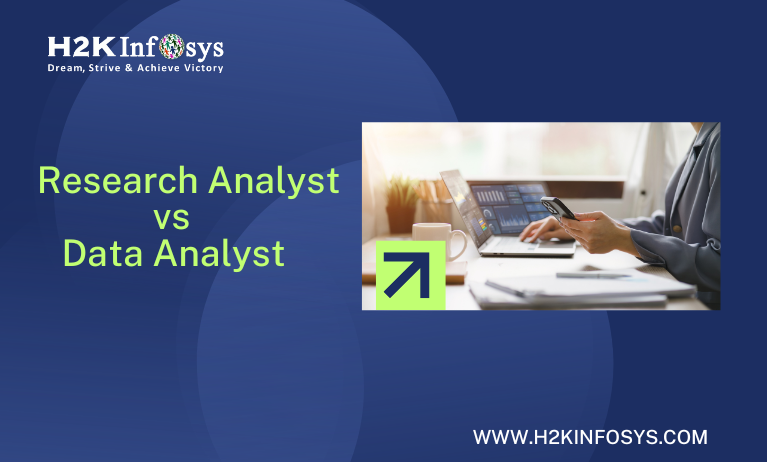









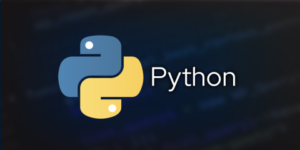
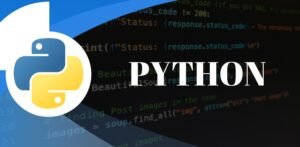
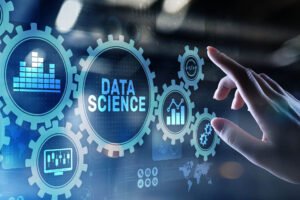
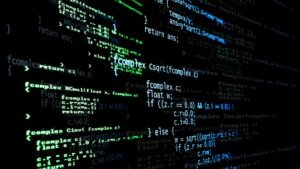

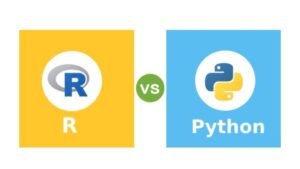
















2 Responses
A person completed eee, mba in energy management and working as a research analyst, what skill or course is helpful for his future improvement